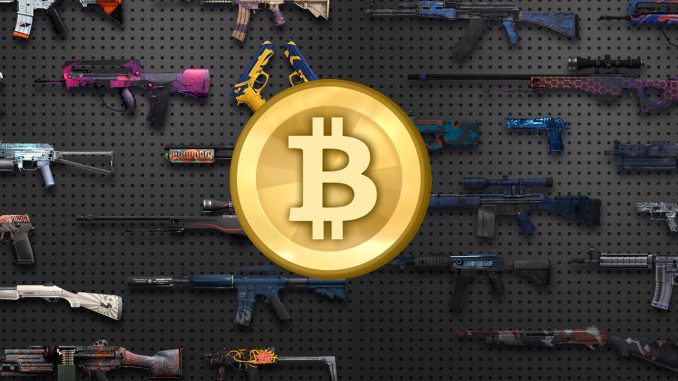
In ancient societies, people paid with labor and items such as shells. Coins, silver, gold, etc. were developed as trading currencies later on. Paper money was introduced in the 18th century and has dominated the market ever since. Entering the 21st century, digital pay was introduced. Paypal, Apple Pay, WeChat pay etc. are now a major way of payment. The birth of digital pay brought numerous conveniences, for example, it sparked internet shopping. However, customers are still paying in a specific national currency.
Bitcoin was invented by an anonymous person/group called Satoshi Nakamoto on August 18, 2008. On January 3, 2009, the bitcoin network was launched. Nakamoto mined the first 50 bitcoins that day. The first valuable bitcoin transaction was made a few months later, where a client purchased 2 Papa John’s pizzas with 10,000 BTC. The only technical flaw in the history of the bitcoin system was spotted in August 2010, which hackers exploited to generate 100+ billion bitcoins, yet a fast solution was found, and the general economy was unharmed. Other cryptocurrencies such as Litecoin started to emerge by sampling the code of BTC in 2011. It was also at that year where lots of organizations started accepting bitcoin transactions. At that time one bitcoin was worth less than 10$.
Bitcoin gained international recognition from 2013 to 2016, with its price maintaining in the range from 500$ to 1300$. Bitcoin experienced a breakthrough in April 2017, with its price boosting above 1000$ and reaching 2000$ in May. Over the next few months, bitcoin steadily rose except for the week when China decided to terminate local bitcoin trading. In December, the price of bitcoin topped at 18,000$. Unfortunately, bitcoin dipped near Christmas and was worth around 6000$ in February. At the moment this article was written, bitcoin is rising and is nearing 10,000$.
As bitcoin increases in influence and relevance, many major organizations accept bitcoin as a payment method online and in real life. That includes KFC Canada, Subway, Microsoft, Reddit, Wikipedia, Shopify and many more businesses. Personally, my family and I started investing on cryptocurrencies in early 2017, yet I noticed bitcoin in 2015 on OPskins, an online store selling virtual gaming items, which is the alternative currency to be talked about next.
Counter-Strike: Global Offensive (abbreviated as CS:GO) is a game developed by Valve and available on steam, the biggest PC gaming platform. In 2013, Valve introduced the concept of in-game skins that decorate a player’s weapon. when they play. Skins can be obtained from a reward after a game, or more commonly come out of a case that costs 2.5$ to open with a key. Since steam is a multi-game platform, there can be trades between players and on the community market. Skins are highly demanded because it makes a player look cool and signifies wealth. There are different rarities for skins, with covert being the rarest and consumer grade being the most common. Skins also differ from their float value (0-1) which determines its condition, the lower the float, the better. For example, a skin with a 0.02 float is classified as factory new and clean-looking, whereas one with a 0.9 float is battle-scarred and terribly scratched. Rare, good-looking skins such as the AWP | Dragon Lore are worth well over 1000$.

Third party sites completely took advantage of steam’s trading policies. First, money to skin trading sites such as OPskins emerged. Since you cannot take out money charged into steam, sellers are willing to sell their skins for a discounted price, and of course, buyers are willing to purchase skins for cheap. Later, shady people in the business created gambling sites that allowed players to deposit skins as currencies to bet with. This quickly became popular and dominated the digital trading scene. Since digital items weren’t considered as money, there were absolutely no restrictions for these sites, as anybody of any age can access this anywhere. Owners of these sites reportedly earned millions a month, and of course, that came with the empty wallets of thousands. Valve finally took account of this issue in 2017, banning numerous popular sites with thousands of online users at any moment. However, they could not stop the use of steam trade bots, which allowed the survival of some sites. On YouTube, gaming YouTubers are often sponsored by these sites. Per my knowledge, CS:GO gambling existed in our school community during this time span, and various students have lost hundreds to thousands from this industry. Luckily, Valve completely killed CS:GO trading recently. There is now a 7-day cooldown period when you trade skins now, meaning that one cannot possibly deposit and withdraw their skins from a third-party site immediately.
By the mayhem of the history of the CS:GO market, it’s very difficult to shift to an alternative currency without facing major problems. Bitcoin gambling sites are also present, and I don’t recommend investing in bitcoin for now.
3 thoughts on “Cryptocurrency & Digital Items”
Sorry, comments are closed.